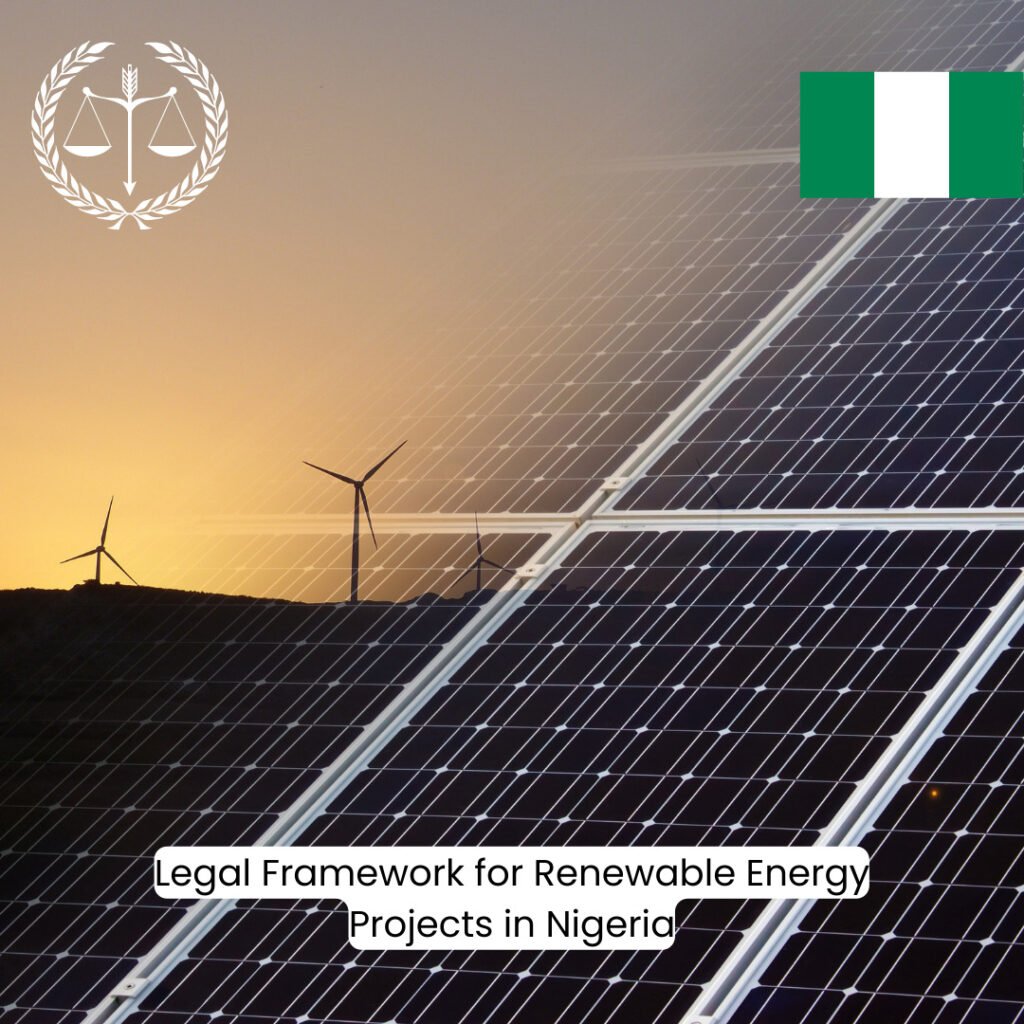Powering Progress: Exploring the Legal Framework for Renewable Energy Projects in Nigeria
As the world focuses on sustainable solutions to address energy and environmental challenges, renewable energy projects have gained prominence. Nigeria, with its abundant renewable energy resources, is embracing a transition towards cleaner and more sustainable energy sources. To facilitate this transition, a robust legal framework is essential to provide clarity, encourage investments, and ensure the successful implementation of renewable energy projects. This article delves into the legal landscape governing renewable energy projects in Nigeria, highlighting key regulations and considerations for developers and investors.
The Nigerian Electricity Regulatory Commission (NERC)
The Nigerian Electricity Regulatory Commission (NERC) is the regulatory authority overseeing the electricity sector, including renewable energy projects, in Nigeria. NERC’s role is to establish a conducive regulatory environment, ensure fair competition, and safeguard consumer interests.
Legal Framework for Renewable Energy Projects
- Electric Power Sector Reform Act (EPSRA) 2005: This landmark legislation established the framework for private sector participation in the electricity sector. It introduced the concept of Independent Power Producers (IPPs), allowing private entities to generate and sell electricity.
- Renewable Energy Master Plan (REMP) 2015: The REMP outlines Nigeria’s renewable energy goals and strategies. It aims to achieve 30% of the country’s electricity generation capacity from renewable sources by 2030.
- Feed-in Tariffs and Power Purchase Agreements (PPAs): NERC issues regulations that set feed-in tariffs for different renewable energy sources. IPPs enter into PPAs with distribution companies to sell generated electricity at agreed prices.
- Mini-Grid Regulations: NERC has introduced regulations to govern mini-grids, which are standalone electricity generation and distribution systems. These regulations provide guidelines for licensing, tariff setting, and technical standards.
- Off-Grid Electrification Regulations: Off-grid solutions, such as solar home systems and mini-grids, are regulated to encourage investment and ensure quality services.
- Net Metering: NERC has initiated net metering regulations, allowing consumers to generate their own renewable energy and feed excess electricity back into the grid.
Incentives and Support Mechanisms
- Renewable Energy Feed-in Tariffs: NERC establishes feed-in tariffs to incentivize investment in renewable energy projects, guaranteeing fixed prices for the electricity generated.
- Renewable Energy Fund: The Nigerian Federal Ministry of Environment launched a fund to support renewable energy and energy efficiency projects.
- Tax Incentives: Renewable energy projects can benefit from tax incentives, including exemptions from Value Added Tax (VAT) and import duties on equipment.
Challenges and Considerations
- Grid Integration: Integrating renewable energy into the national grid requires technical and regulatory considerations to ensure stability and reliability.
- Land Acquisition: Land availability and acquisition processes can impact project timelines and costs.
- Policy Consistency: Continuity in policy implementation is essential to provide confidence to investors and ensure long-term sustainability.
- Local Content Requirements: Some regulations stipulate a percentage of local content in project development to promote local industry growth.
Conclusion
Nigeria’s legal framework for renewable energy projects is evolving to facilitate a sustainable energy future. With the government’s commitment to harnessing its renewable energy potential, investors and developers can tap into a promising market. By navigating the regulatory landscape, understanding incentives, and addressing challenges, renewable energy projects can play a significant role in not only expanding Nigeria’s energy capacity but also reducing its carbon footprint and contributing to a greener and more sustainable future.

